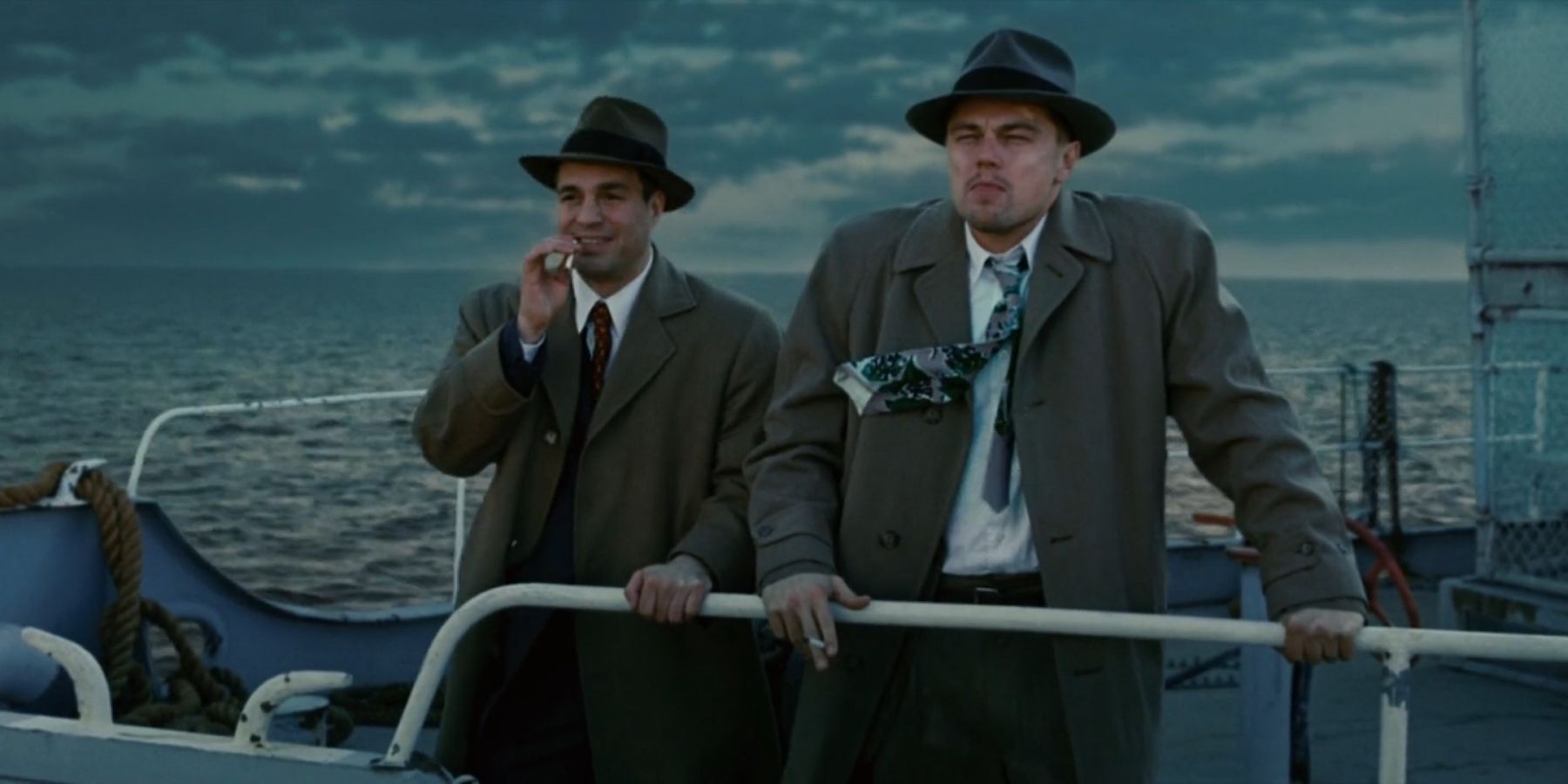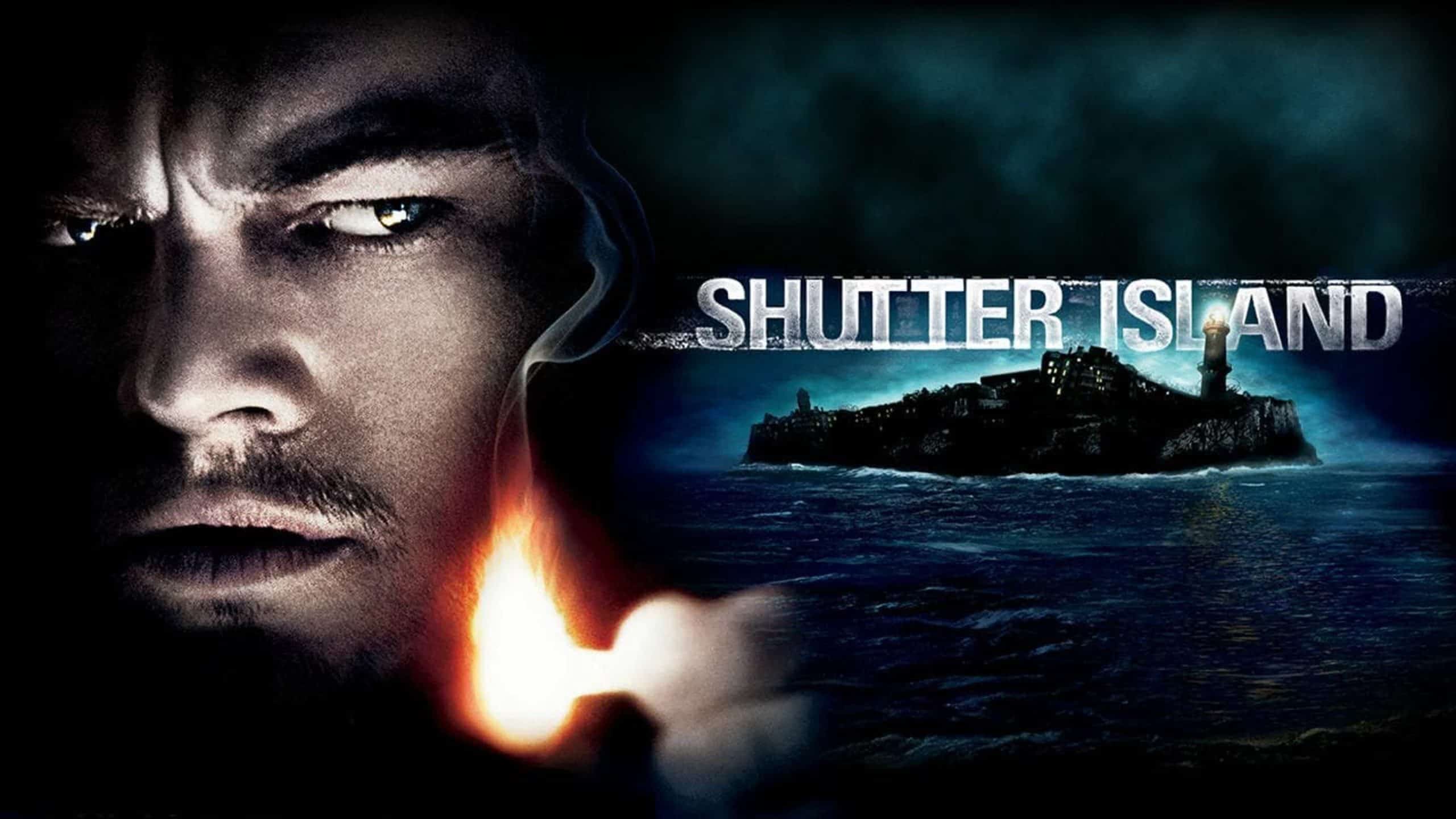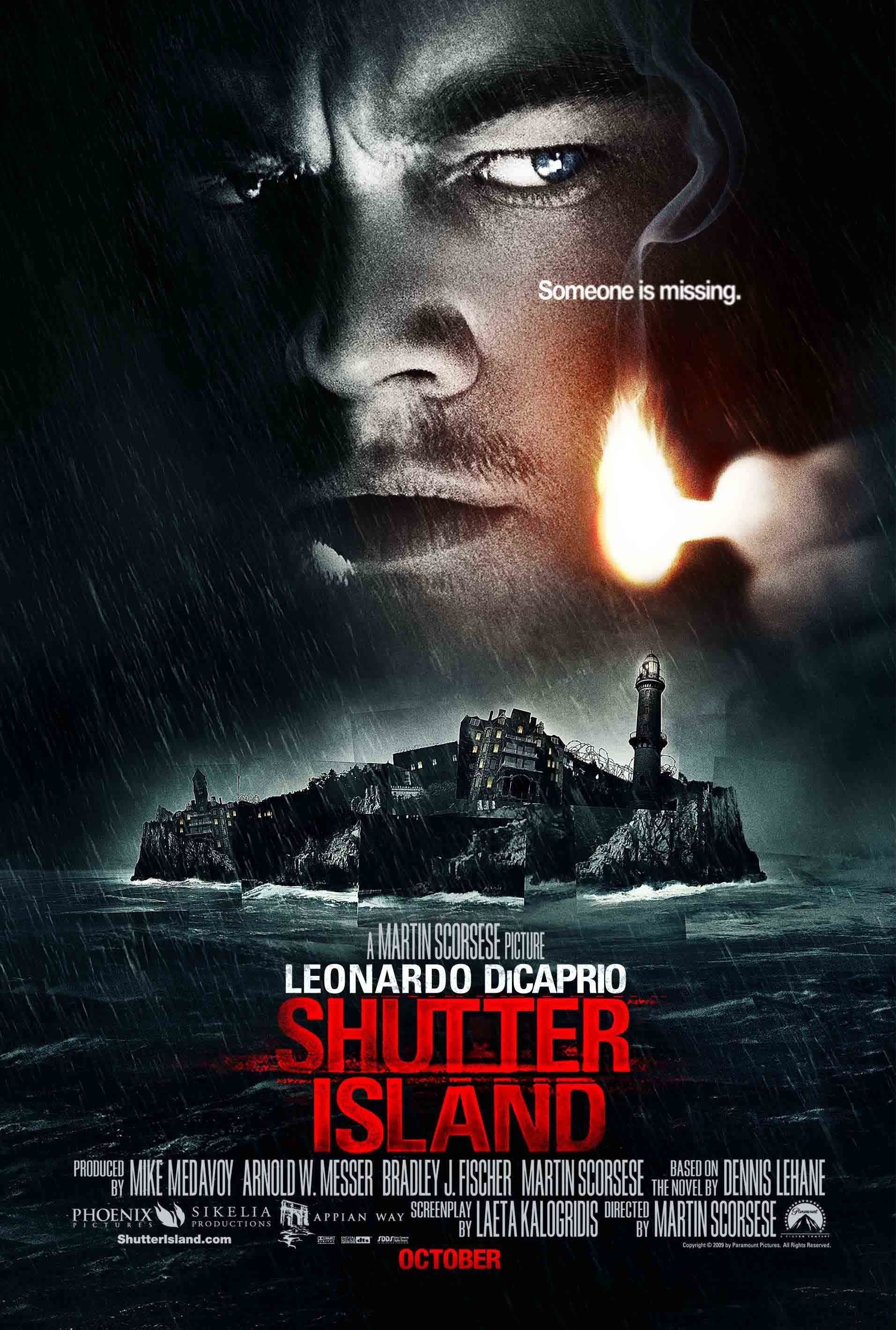Unraveling The Shutter Island Ending: What Truly Happened?
The way a story wraps up, you know, it can really stick with you. For a lot of folks, the ending Shutter Island leaves them with more questions than answers. It's a film that just begs for a good chat about what it all meant, and that's a pretty cool thing for a movie to do, actually. We often find ourselves going back to it, thinking about those final moments, wondering if we missed something important.
This movie, a truly gripping psychological thriller, has a knack for twisting your perceptions. It throws you into a world where reality feels shaky, and trust, well, that's a very rare thing to find. So, it's almost no wonder that when the credits roll, many viewers feel a bit lost, trying to put the pieces together. It's not a straightforward "happily ever after" or a clear-cut resolution, that's for sure.
We're going to take a close look at the film's final moments, exploring the ideas that make it so memorable. We'll talk about the big questions people often ask and see if we can shed some light on the various ways you can think about what happens. This article aims to give you a clearer picture of why the ending of Shutter Island has captivated so many people for so long, and perhaps help you form your own ideas about it, too.
Table of Contents
- What Do We Mean by "Ending"?
- The Core Puzzle of Shutter Island
- The Two Big Ideas About the Ending
- Key Moments and Subtle Hints
- The Director's View: Scorsese's Intentions
- Why the Uncertainty Makes It Great
- Frequently Asked Questions About the Ending
- Sharing Your Own Thoughts
What Do We Mean by "Ending"?
When we talk about an "ending," we're really looking at something that brings a tale to a close. It's the part where things stop going on, you know? According to various ways of putting it, an ending is the very last bit of a book, a movie, or any sort of tale, especially when you think about how the whole thing wraps up. It's the act of reaching a final point, or the point itself where something just doesn't continue anymore, basically.
It's the conclusion, the final chapter, the termination of a story or a period of time. Think of it as the point where something just ceases to be, or where it comes to a stop. For instance, you might hear about a "Hollywood happy ending," where everything turns out great, or even a "true ending" that gives you the real scoop. In the case of Shutter Island, its final part is what makes us all scratch our heads, wondering about the real meaning, and that's rather interesting.
The Core Puzzle of Shutter Island
The film places us on a remote island facility, a place for the criminally insane, where U.S. Marshal Teddy Daniels arrives to look into a missing patient. From the get-go, things feel a little off, you know? The atmosphere is thick with unease, and Teddy himself seems to be battling some personal demons, too. We see flashes of his past, especially memories of his wife and the war, and these visions start to blur the lines between what's real and what's not, apparently.
As Teddy digs deeper into the disappearance, he starts to suspect that something much bigger is happening on the island. He believes the doctors are up to no good, maybe even experimenting on the patients. This whole setup creates a really strong sense of paranoia, making us, the viewers, question everything right alongside him. It's a very clever way to keep us guessing, and it certainly works.
The central question that keeps us on the edge of our seats is whether Teddy is a brilliant detective uncovering a dark secret, or if he's actually a patient himself, caught in a complex delusion. This uncertainty is what makes the film's final moments so powerful and so debated. It's like the movie challenges you to pick a side, but then it pulls the rug out from under you, leaving you to wonder what you saw, and what you thought was true, you know?
The Two Big Ideas About the Ending
When people talk about the ending of Shutter Island, two main interpretations usually come up. Both of them offer a way to make sense of the final scenes, but they lead to very different conclusions about what actually happened to Teddy Daniels. It's a bit like looking at the same picture but seeing two totally different things, and that's quite fascinating.
Idea One: A Grand Deception
One popular thought is that Teddy Daniels is indeed a U.S. Marshal, and he's been caught in a vast conspiracy. In this view, the doctors at Ashecliffe Hospital are performing terrible experiments on their patients, maybe even brainwashing them. Teddy, the determined investigator, gets too close to the truth, and the staff then tries to break him, to make him think he's insane. This idea suggests that everything we see, especially the moments that point to his supposed madness, are all part of a very elaborate trick designed to silence him, you know? It's a pretty dark thought, but it fits with the thriller aspect of the movie.
Supporters of this theory often point to certain details: the suspicious behavior of some staff members, the secretive nature of the lighthouse, and the general feeling of being watched and manipulated. They might argue that Teddy's visions are not delusions but rather the result of drugs or psychological torment meant to push him over the edge. This perspective turns the film into a classic "man against the system" story, where the hero is ultimately defeated by powerful, hidden forces. It's a compelling idea, as a matter of fact, making you wonder about the darker side of institutions.
Idea Two: A Painful Truth
The other major idea, and perhaps the one most widely accepted, is that Teddy Daniels is actually Andrew Laeddis, a patient at Ashecliffe. In this interpretation, the entire story we've witnessed is a complex role-play designed by Dr. Cawley and his team. They are trying a radical new form of therapy to help Andrew face his past and recover from a terrible trauma. His "investigation" is merely his delusion playing out, and the staff are trying to gently guide him back to reality, you know, without resorting to more extreme measures.
This view suggests that Andrew (as Teddy) has created an elaborate fantasy to escape the unbearable pain of his real memories. The missing patient, Rachel Solando, is a figment of his imagination, and his quest to find her is a metaphor for his attempt to find a part of himself he has lost. The subtle hints throughout the film – like the way patients and staff react to him, or the inconsistencies in his own story – all support this idea. The ending, then, becomes a moment of choice for Andrew: to accept the painful truth or retreat into his fabricated world. It's a pretty heartbreaking thought, actually, when you consider the weight of his suffering.
Key Moments and Subtle Hints
The film is packed with small details and scenes that can be read in different ways, depending on which ending theory you lean towards. These moments are what make the movie so rich for discussion, and they're why people keep coming back to it, trying to spot new clues. It's like a puzzle where every piece can fit in more than one spot, you know?
The Lighthouse: A Place of Secrets
The lighthouse stands as a very strong symbol throughout the movie. For Teddy, it's the place where he believes the darkest secrets of Ashecliffe are hidden, perhaps where illegal surgeries or experiments are taking place. It's the ultimate destination of his investigation, the supposed heart of the conspiracy. The way it looms over the island, almost like a watchful eye, certainly adds to that feeling of mystery, doesn't it?
However, if you consider the "painful truth" theory, the lighthouse takes on a different meaning. It becomes the place where Andrew finally confronts his reality, where the elaborate therapeutic play reaches its peak. It's where Dr. Cawley reveals the truth, offering Andrew a chance to break free from his delusion. So, it's not a place of external secrets, but rather the location where Andrew's internal struggle comes to a head, which is rather profound.
Dreams and Visions: What They Tell Us
Teddy's dreams and waking visions are a very big part of the film's unsettling atmosphere. He frequently sees his deceased wife, Dolores, and their children, often in disturbing scenarios. These visions are incredibly vivid and painful, showing us the deep trauma he carries. In the "conspiracy" theory, these might be seen as the effects of the island's manipulative tactics, designed to break his mind. They could be drug-induced hallucinations, or simply the stress of his dangerous mission getting to him, you know?
On the other hand, if Andrew is indeed the patient, these visions are clearly manifestations of his guilt and grief. They are the fragmented memories of the horrific event that led to his breakdown, pushing through his constructed reality. The intensity of these visions, their recurring nature, and their deeply personal content strongly support the idea that they come from within him, rather than being externally imposed. They are, in a way, his mind's desperate attempt to process an unbearable truth.
The Doctors: Their Parts in the Story
Dr. Cawley and Dr. Naehring play very key roles in the narrative, and their intentions are quite ambiguous for much of the film. From Teddy's perspective, they are the masterminds of the conspiracy, the ones pulling the strings and trying to keep him from uncovering the truth. Their calm demeanor and seemingly logical explanations can come across as condescending or even sinister, making you wonder about their true motives, you know?
However, if they are indeed treating Andrew, their actions take on a completely different light. Their patience, their willingness to engage in the elaborate role-play, and their persistent attempts to "talk him down" from his delusion become acts of compassionate therapy. They are trying to help a deeply troubled man, using an unconventional but potentially effective method. Their calm is not sinister, but rather the steady hand of professionals trying to guide a patient back to sanity, which is a very different way to look at it.
That Final Line: A Thought Provoker
The very last line spoken by Teddy/Andrew is arguably the most talked-about part of the entire film. He asks Dr. Sheehan (Chuck), "Which would be worse – to live as a monster, or to die as a good man?" This question, delivered just before he's taken away for what seems like a lobotomy, is what truly seals the film's ambiguous nature. It's a very powerful statement, and it leaves you with a lot to chew on.
If Teddy is sane and has uncovered a conspiracy, this line could mean he's choosing to pretend to be insane to avoid being silenced or killed by the corrupt institution. He'd rather "die as a good man" (by being lobotomized, thus escaping the monster of the institution) than "live as a monster" (by being forced to comply or be part of their system). It's a defiant act, a final stand against injustice, you know?
But if Andrew is indeed the patient, the line takes on a profoundly tragic meaning. He has briefly come to terms with the horrific truth of his past – that he, in a way, became a "monster" due to his actions (or inaction) surrounding his family's deaths. Faced with the unbearable pain of that reality, he chooses to retreat back into his delusion, effectively "dying as a good man" (Teddy Daniels, the sane marshal) rather than "living as a monster" (Andrew Laeddis, the man who lost his family and committed a terrible act). It suggests a conscious decision to embrace the delusion over the agony of truth, and that's a very sad thought, really.
The Director's View: Scorsese's Intentions
Martin Scorsese, the director, is known for making films that delve deep into the human mind and often leave viewers with complex moral questions. With Shutter Island, it seems his main goal was not to give us a neat, tidy answer, but rather to create a lasting sense of unease and debate. He wanted us to feel what Teddy felt, to experience the confusion and the blurring of reality, you know? It's a very deliberate choice to keep things open-ended.
Scorsese has hinted that the ambiguity is the point. He doesn't want to tell you what to believe, but rather to make you think about it long after the credits roll. The film is an exploration of trauma, memory, and the human capacity for self-deception. By not giving a definitive answer, he forces us to confront our own perceptions and biases, making the viewing experience a very active one. It's a pretty masterful way to tell a story, if you ask me.
The film's strength lies in its ability to sustain both possibilities, making each feel equally plausible at different times. This duality is a hallmark of Scorsese's work, where characters often grapple with their inner demons and the harsh realities of their world. He wants us to feel the weight of Teddy's choice, regardless of which interpretation we favor. This approach makes the film a compelling piece of art that invites repeated viewings and endless discussion, and that's quite an achievement.
Why the Uncertainty Makes It Great
The fact that the ending shutter island remains so open to interpretation is actually one of its greatest strengths. If the movie had given us a clear "this is what happened" moment, it might not have stayed with us in the same way. The ambiguity forces us to engage with the story on a much deeper level, to consider the characters' motivations and the meaning of their actions. It's like the film trusts us to do some of the work ourselves, you know?
This lack of a definitive answer sparks conversations, encourages re-watches, and allows for personal reflection. It transforms the film from a simple narrative into a psychological exercise. Viewers become detectives themselves, searching for clues and weighing the evidence for each theory. This active participation makes the experience much more memorable and impactful. It's a very clever way to keep people thinking about your work, basically.
Moreover, the uncertainty speaks to bigger ideas about truth, perception, and the nature of reality. It suggests that sometimes, the answers aren't clear-cut, and that what we choose to believe can be just as important as what's factually true. This philosophical depth is what elevates Shutter Island beyond a typical thriller, making it a film that truly resonates with many people. It's a pretty powerful piece of storytelling, when you consider it all.
Frequently Asked Questions About the Ending
Was Teddy Daniels crazy or not?
This is the big question everyone asks, isn't it? The film really doesn't give a simple yes or no. You can see it as Teddy being genuinely insane, a patient named Andrew Laeddis who has created a whole fantasy to cope with a terrible past. Or, you can see it as him being a sane marshal who uncovered a conspiracy, and the "madness" was forced upon him. The movie is designed to keep both ideas alive, making it a bit of a mind game for the viewer, actually.
What does the final line "Is it better to live as a monster or die as a good man?" mean?
That line is very deep, and it's the one that sticks with most people, you know? If Teddy is Andrew, it suggests he's choosing to go back into his delusion (dying as the "good man" Teddy) rather than live with the awful truth of what he did (being the "monster" Andrew). If he's sane, it could mean he's choosing to pretend to be crazy to escape the hospital's dark secrets, preferring a lobotomy over living under their control. It's a choice between two very difficult paths, basically.
What happened in the lighthouse?
The lighthouse is where the truth, or at least a version of it, comes out. In the film, Dr. Cawley explains to Teddy that he is, in fact, Andrew Laeddis, and that the whole investigation was a staged intervention to help him. They present him with the facts of his past. So, it's the place where the grand experiment reaches its climax, and Andrew is faced with his reality. It's a very intense scene, and it's rather pivotal to the whole story, actually.
Sharing Your Own Thoughts
The ending of Shutter Island continues to fascinate and challenge viewers, even years after its release. Its power comes from its ability to make us question everything we see and to consider the complex nature of the human mind. Whether you believe Teddy was a victim of a grand conspiracy or a man grappling with a devastating truth, the film leaves an unforgettable mark.
What are your thoughts on the ending? Did you lean towards one theory more than the other, or do you enjoy the lingering uncertainty? We'd love to hear your interpretations and what you took away from this truly thought-provoking film. Share your ideas and let's keep the conversation going, you know?

Shutter Island's Ending Explained

Shutter Island' Ending, Explained — What Does It Mean?, 43% OFF

Shutter Island Ending, Explained